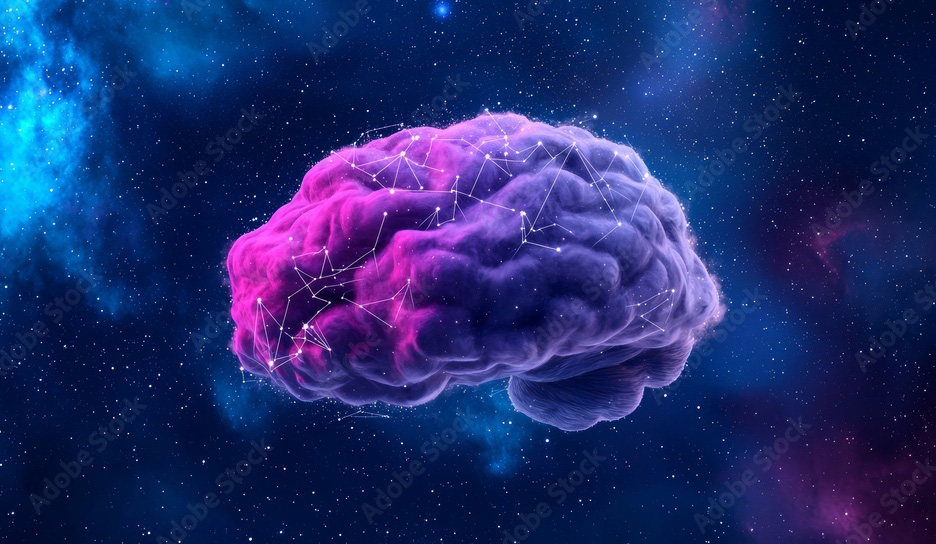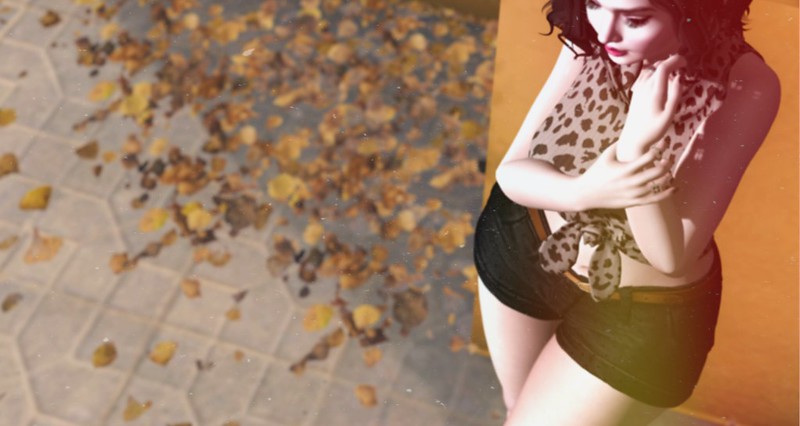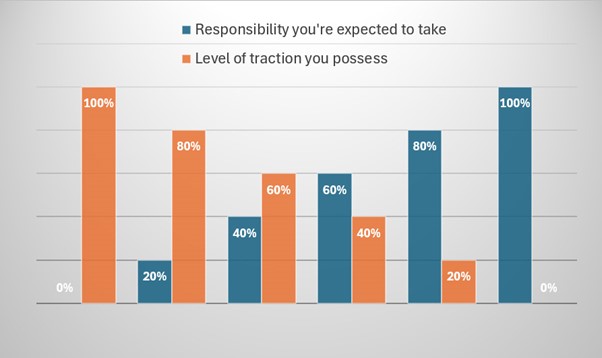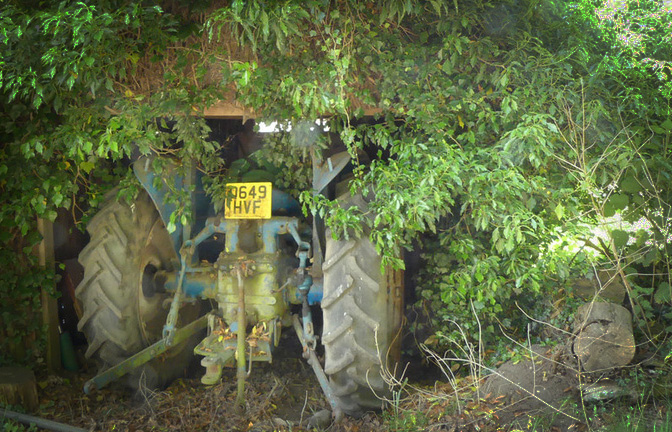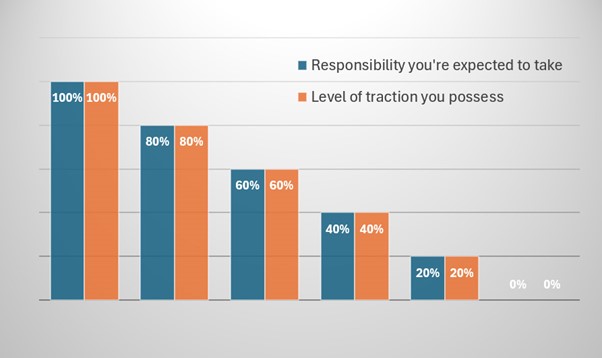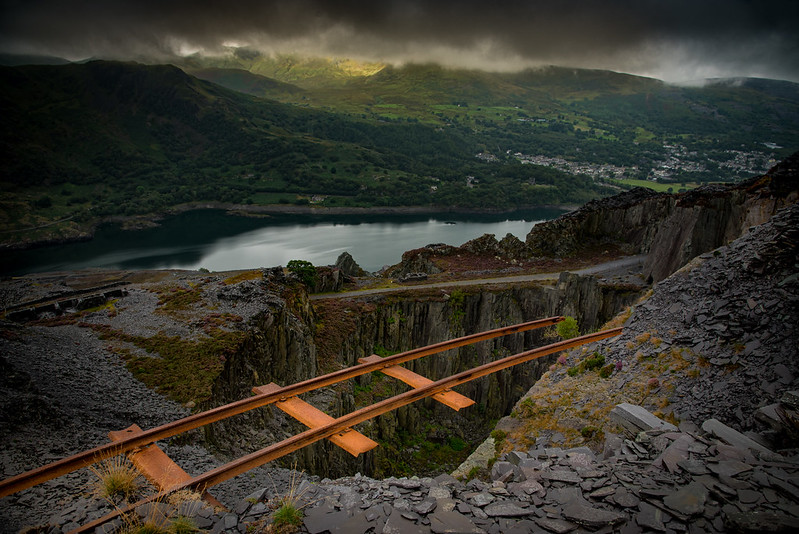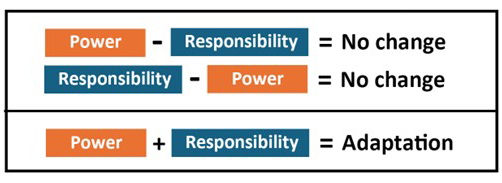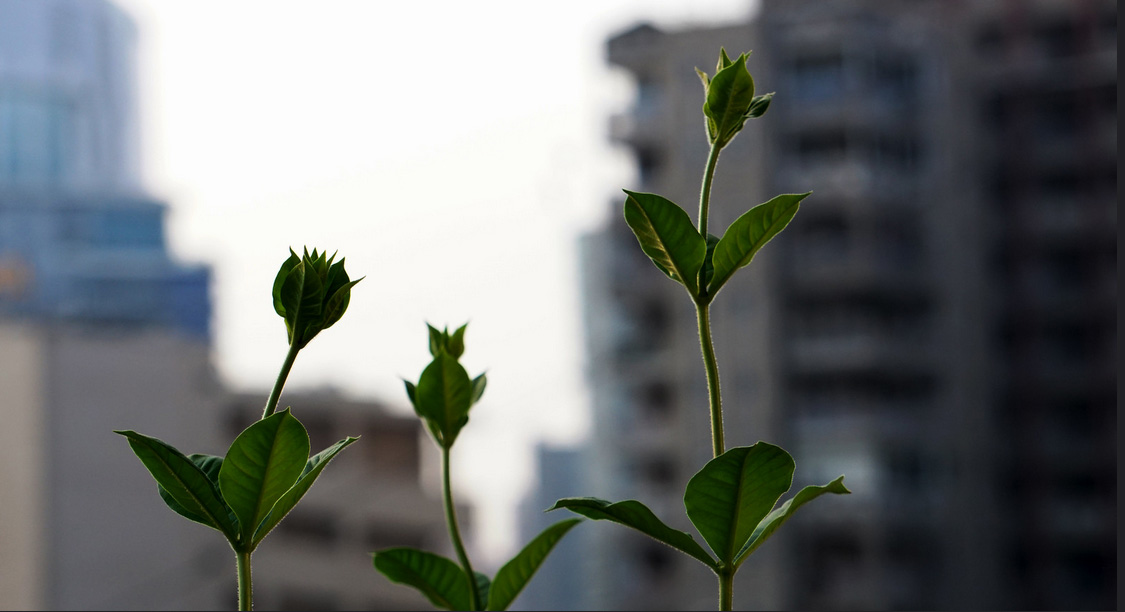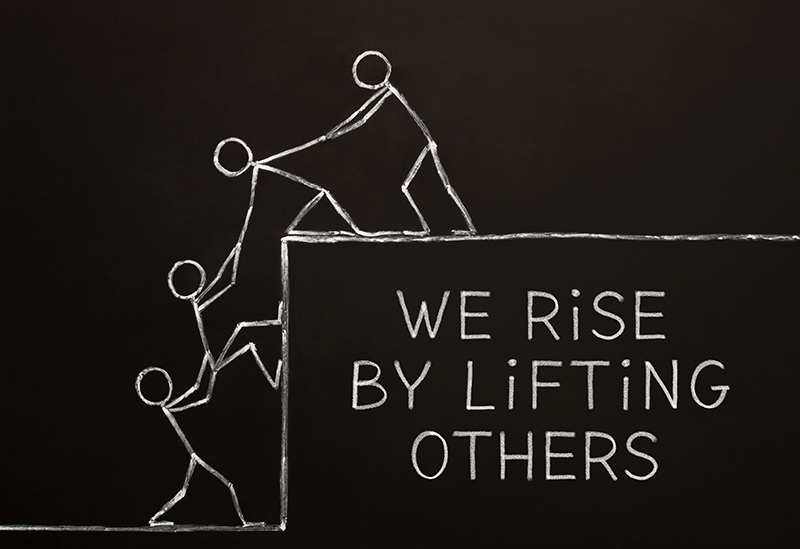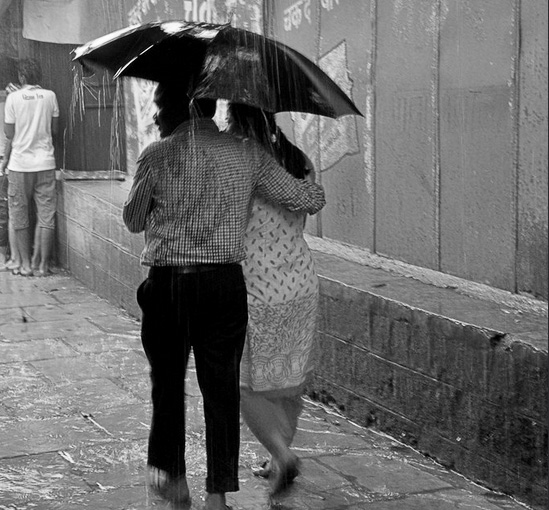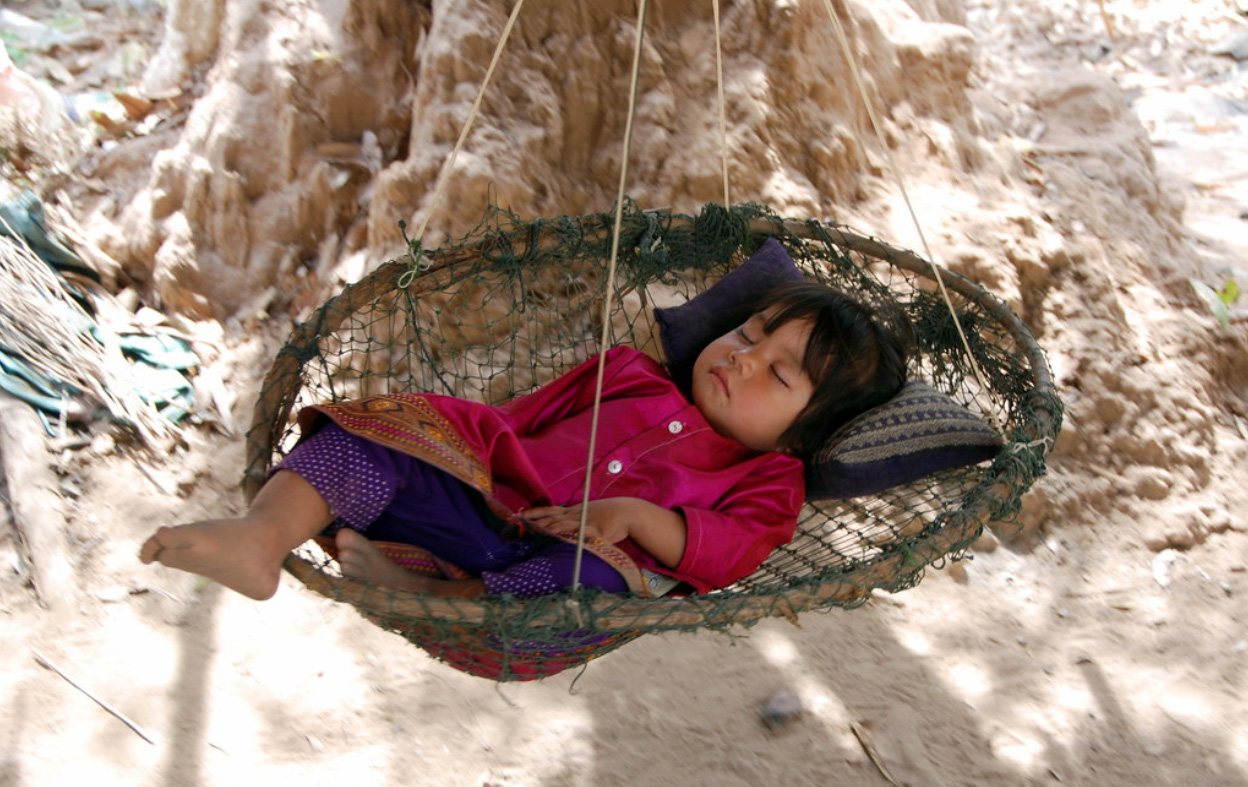What makes bad people?
On morals and inertia
by Katy Elphinstone, January 2025
Following my article on the dynamics of blame, I was asked questions.
Questions like, “But if you’re exchanging blame for responsibility, don’t you have the same system but just with a different name?”
And, “Are you proposing that there’s no ‘good’ and ‘bad’, and that morals are redundant? Wouldn’t this result in having a moral-less society?”
This made me think a lot.
Clearly, I’d been right to think people equate blame with responsibility!
My threads on things like 'when children lie' and 'when kids are hurt or things get broken' were me starting to question that ethos as a parent – because of seeing its disastrous outcomes.
When we mix blame into the same pot as responsibility, the whole dish looks quite undesirable. Anyone offered a ladle-full will reasonably reply, “No, thanks.”
And, in the meantime, we’ve mixed action into the same pot as being coerced, i.e. punished or rewarded, into it – by one’s parents, one’s teachers, one’s bosses, and (once the theme has been thoroughly internalized), oneself.1
In this way, we’ve also made action feel quite undesirable. In our experience, we didn’t choose the actions ourselves (not really) and therefore probably find them quite unpleasant e.g. right through our school years. Note: even if we get a lovely reward or avoid a horrible punishment by doing the action, the action itself does not become any more attractive. Quite the contrary, actually.2
At this point, I wrote a thread on 'human nature' and the blog post 'why rewards and punishments go a bit wrong with autistics'.
The sum result? Both taking responsibility and taking action have been put into pots that anyone with any choice will walk straight past.
And here we have it.
We’ve created an almost unbelievable (except it’s true) situation. Choice was the operative word in that sentence above. In any situation, you need to have enough autonomy and resources to take the path of your choosing. If you don't have them, you can't take that path. And autonomy and resources, in our heirarchical society, tend to be synonymous with power, wealth, and influence over others.
Meaning that the more wealth, power, and influence a person has, the more choice they have.
In the meantime, responsibility and actions have been rendered undesirable though (ahh, the irony) having a ‘strict moral code’ involving punishment, blame, coercion, and shame – in a nutshell, some quite horrible feelings that we would all, understandably, prefer to avoid.
So... to sum up... the more wealth, power, and influence people have, the more they'll avoid taking any responsibility or actions.
With great power should come great responsibility.3 But it doesn’t. Currently, with great power comes great ability to avoid responsibility.
Meanwhile, naturally, it’s only through having enough power, size, and presence, that one is logistically equipped to change or fix things.
When you have little of those, you can’t affect things very much, hard as you may try. You simply don't possess the traction to do so. One could call it ‘reality inertia’ (think of an elephant’s tail. No matter how much it waggles it won’t move the elephant. Whereas one little fidget of the elephant’s body will set the tail flapping about like anything).4
An example of someone with very little power to affect things would be an autistic child in an abusive family attending a sink school, or a convict belonging to a racial minority on a life sentence. An example of someone with far greater power to affect things would be a CEO, a billionaire, or a head of state.
Yet it's a favourite pastime – especially, rather ironically, among generally progressive people – to tell others it's 'in their hands' and they 'have the power' (when actually, logically and logistically, it's not and they don't). In threads like, 'do you have to, or do you choose to' and 'on taking back your power', I've explored this a little.
It doesn’t take a rocket scientist to detect who’s receiving the punishment. Who’s being given the responsibility (blame), whether they want it or not, and who’s getting the rewards. We may think we’re blaming the rich – but that’s just lip service.5 The proof is in the pudding. We can’t take it out on them, as they’re unreachable. No – we play out our unhappinesses and our little powers on those closer to hand, e.g. our children or partners, the waitress in the café, or the call centre employee.
So used are we to this version of morality, where blame is tacitly synonymous with responsibility, that we’re failing to take note of its rather bizarre results.
If we applied this to any other sphere outside a social one, we’d look at it and scratch our heads. It just doesn’t make any sense!
Think of a little tractor with a one-stroke engine and no scoop-thingy being tasked with holding back a floodwall. But yet – by definition of the above – they’ve been left with nearly all the responsibility for doing so.
Meanwhile, the big tractors with powerful engines and caterpillar chains and huge scoops sit about having coffee. They might now-and-then point at the silly little tractor chugging away ruining itself in the mud, and laugh at it, or make some derisive comment. Or say there’s no flood, even though the only reason for that is those poor little tractors killing themselves holding it back.
Quite apart from the obvious unfairness and suffering going on here, this system is also hopelessly impractical. After all, just because no one wants to take responsibility doesn’t mean things don’t have to be done, e.g. to feed us, clothe us, house us, and generally support our survival.
I've looked at the theme of division of labor in my article ‘should parents be paid?’
I guess, if things don’t seem to be working very well, this pattern may go some way to explaining why they don’t! This simple equation, by virtue of simple logistics (as we happen to live on a finite planet), will spell disaster… if we don’t change it, pronto.
As a society, our head isn’t connected with our hands. Therefore, we don't adapt to changing circumstances. We’d never be able to swerve in time if there was an iceberg up ahead.6
From the micro to the macro, from how we behave with our family to the logging of the Amazon rainforest, this simple dynamic will inevitably, sooner or later, bring about the collapse of our civilization.
So… would it not work better if it were the other way around?
Here, responsiblity isn't connected with who's "to blame" for any given situation, but instead who's present who possesses enough traction to change the situation for the better. Voila. To me, this seems both simpler and more productive.
Curiousity and solutions have better outcomes, arguably, than twisting ourselves into contortions about "who's to blame" and whether they "meant to" or not.7 Finding a culprit and punishing them is, in our culture, often presented as a solution in itself. Even while the ship sinks.
When doing the graph above, I began to wonder why CEOs and billionaires don’t change things more – take more positive action – if they possess such traction to do so?
They must lack at least one of the ingredients for the needed traction to take place. Otherwise, they’d be doing it. So, what are the ingredients for not just possessing traction, but using it?
- Resources (this includes money)
- Freedom
- Influence
And then I realised they do lack an ingredient. Of course. Freedom.
It may sound laughable to say that our magnates (‘great men’) don’t have freedom, as – nominally, physically – they do. But mentally?
Suddenly, it made sense. The way we treat our future oppressors as children. The huge doses of alienation and cruelty needed to make young humans become that way i.e., deeply, profoundly untrusting. The fact that pretty much all the boys who attended the most elite schools, back in the day, exhibit reliable signs of PTSD.8
See my thread on ‘ten ways rich, white, straight, educated males aren’t lucky’ for more on this theme.
So those big tractors? Hm – let’s say their ignition keys all got lost in a haystack, many years ago, and are now irretrievable.
And of course – while I’ve presented it as either/or (big or small, keys or no-keys), it’s not really like that at all. It’s proportional, and relative, and we’re all at it.
In effect, no one’s to blame and we’re all equally trapped. It’s a bit of a stitch-up.
We’ve come face to face, on our finite planet here, with a resistance to change that’s built into the very fabric of our society, in the form of fear. Fear of the unknown. Fear of taking risks – “better the devil you know than the devil you don’t.”
Only that when one is heading for an abyss, it’s probably better to change direction.9
The equation of no-change
Power without any responsibility, equals no change. Responsibility without any power, equals no change.
Power combined with responsibility, equals adaptation.
What can we do?
It starts to look like we're all a bit stuffed!
Can we turn this thing around? I think the answer could, just possibly, be 'yes'. Only... how?
Phase 1 – Recalibration (finding our keys)
- Stop with blaming. Also with punishments. They don't work anyway – at least, not for the stated purpose. (Though, of course, it does work very well to maintain the status quo!)
- Replace blame and punishments with compassion, curiosity, and solutions.
- Carefully study all our relationships and all of our micro-interactions, so we can spot, and gradually remove, the coercive mechanisms hidden in them.
As we heal and become more self-aware, we'll start feeling compassion towards everything and everyone – including those who currently oppress us.
The mechanisms we use to control the people around us, or those we have access to, are an intrinsic feature of our society. Our structures and systems – education, employment, justice – are all predicated upon the same mechanisms, on a collective level.
The unpicking is going to take time, focus, energy, thought.10
If you don’t know where you are within a power structure, or where others are in relation to you, I found this quiz helpful.
And I've explored ways to detect those telltale signs of when we're exploiting or disrespecting others, in my thread, ‘how to know when you’re exploiting someone’ and the articles, ‘ways to shut people down’, ‘why I don’t say when I’m not okay’, and ‘how to stop your children confiding in you'.
It’ll be a gradual process. Baby steps.
But it’ll be worth it. Bit by bit… we’ll all relax.
We may have to weather the anger of those who’ve, till now, been below us in the power hierarchy – but the compassion helps with that. Theirs and ours.
Anger comes out of being hurt. It helps to remember that. And if we manage to divorce anger from feeling blamed, then so much the better.
As my son so eloquently put it after being bullied at school (we were six months into home education), “I just wish there was someone I could punch who wouldn’t mind!” (he spoke through gritted teeth, fists clenched). “Woah,” I thought, super-impressed, “He’s literally more self-aware and compassionate, at seven, than most adults I know!”
As we heal, we’ll feel safer. That horrible backdrop of tension (even outright fear, e.g. if you’re autistic) that we feel around one another, will dissipate.
We’ll step away from the void. And look instead towards each other.
Phase 2: Implementation (now we've found our keys!)
And now comes the fun part.
Once we’ve recalibrated and can start to trust the universe, and each other, again...
Responsibility isn't a dirty word anymore.
We’ve stopped recoiling slightly every time we hear it – indeed, it doesn’t have to be explicitly said anymore, because it now comes to us as naturally as breathing.
We observe our surroundings without reservation.
We now perceive others’ needs all by ourselves, and no longer need to be forced to see them (which anyway, by definition, was previously a process driven by, and for, those more powerful than ourselves, even when their needs were less pressing than our own).11
When someone says, “Aargh, I can’t find my phone,” (even if they’re our kid and not our boss) we spontaneously react, "Not to worry, I’m calling you now." When we’re driving a big tractor, we say to the person driving the small one, “You don’t need to do that by yourself, let me help you.” And when the work is done (in a jiffy!), we take a nice long coffee break together.
Leadership gets shared.
Whoever’s most competent and able, in any given situation, is the one who naturally (and temporarily) steps up and leads – taking the burdens of self-consciousness and leadership off any one person.
People no longer pretend to lead, but actually do it.
The people who ‘had everything’ in the old days suddenly discover what it is to be liked and trusted – and to trust others. And that feeling – oh my! – it’s even better than yachts and champagne.
Although maybe all of us can have a little turn at yachts and champagne, even just once or twice in our lifetimes? Just a suggestion.
Mountains of energy and time are saved!
Can you imagine the sheer amount of human energy saved by a) not having to make others do things for us against their will (even just to meet our basic needs), and b) not having to constantly be on the alert and resist others’ attempts to make us do things against our will, to satisfy their needs?
We can do a myriad of amazing things that we were simply too depleted to do, before.
How does justice look, now?
The kind of 'justice' we were once accustomed to, that relied on the concept of guilt vs innocence? It looks unnecessary.
As do morals – or what we used to equate with morals, anyway, all based around sins, crimes, and punishments.
On the other hand, the kind of morality that involves simple kindness, respect, and generosity is now so innate it doesn’t need a name anymore. (Fish: “Water?”)
We save a ton of money that used to go into rules, signs, enforcement, and vigilance – as so much less of all that is needed, now people can be trusted.
How do important tasks get done, and problems solved?
Blame is no longer. Curiosity and compassion have taken the day. ‘Finding culprits and punishing them’ has changed to ‘finding solutions and applying them’.
Responsibility is proportional, as shown in the second graph above. Often, it’s also collective, i.e. more than one person picks up responsibility for doing or fixing a thing.
Those who have the most power to change things, in any given situation, step up voluntarily to do so. We observe their contributions with clear, open eyes, and are happy and appreciative.
We no longer feel the need to somehow not notice the contributions of others or put them down subtly if we’re forced to notice them… since we no longer feel pressure to express ‘gratitude’ to them nor ‘repay' them. All that goes without saying – remember, no morality! No burning in hell for eternity. Foof.
My threads on ‘hinting’ and on 'the gifts we think we've given' talk about how we used to make others do things for us, without having to notice that they did.
It’s a known fact that humans find pleasure both in action, and in helping one another and sharing.
We’ve re-discovered this, and it feels amazing. We glow with fulfilment, happiness, and meaning, as we fall asleep each night.
Resources and help now flow to where there’s the most need, not to where there’s already a surplus.
Note: I've looked at the dynamics of resource flow in the articles, ‘Should parents be paid?’ and 'The dynamics of blame'.
No longer alone
We now know we’re all connected.
We no longer have to block out other people's feelings (remember, they used to be ones of pain, anger, and betrayal?). We don’t need to dissociate anymore, nor resort to addictions to escape the guilt and the pain. We aren't out in the cold any longer – alone, as ‘individuals’, lost and defensive, in an uncaring world.
We even feel one another’s emotions. Each other's sorrows. Each other's joys.
Love has become the constant backdrop, replacing fear.
Wherever we are, whatever we’re doing, we feel that warmth and glow of the universe – and each other – holding us.
Turns out there’s no such thing as evil. Bad people. Good people.
There’s only us.
❤️
Footnotes
- Murphy, T.F. (2024). Internalization.
- Grille, R. (2019). Rewards and Praise: The Poisoned Carrot – The Natural Child Project.
- "With great power comes great responsibility" is a proverb popularized by Spider-Man in Marvel comics, films, and related media. Introduced by Stan Lee, it originally appeared as a closing narration in the 1962 Amazing Fantasy #15, and was later attributed to Uncle Ben as advice to the young Peter Parker. Text from Wikipedia.
- I came across the concept of ‘reality inertia’ in the book Real Magic, by Dean Radin (2018).
- Psychology Today. (2024). Toddlers Treat Rich People Better Than Poor People.
- The film, ‘Don’t Look Up’, and the series ‘Salvation’ got this problem into a nutshell. In both, a meteor heads for Earth. In both, humanity is thrown into – well, the equivalent of us all running around the playground screaming and clutching at each other, with very little semblance of order, cohesion, or action.
- The extent to which we, and our legal system, focus on people's (conscious) intentions, looks to me like a bit of a red herring. It's such a hard thing to quantify, let alone to see in categorical, absolutist terms such as "I meant it" and "I never meant it." We seem to have an almost wilful unawareness (rather ironically, now I think about it) around the fact that we're often not aware of our own motivations. Ref: The Elephant in the Brain, Kevin Simler and Robin Hanson (2018).
- Schaverien, J. (2015). Boarding school syndrome: the psychological trauma of the ‘privileged’ child. London ; New York, Ny: Routledge, Is An Imprint Of The Taylor & Francis Group.
- This dampening of the feedback loops that are required to facilitate learning and adaptation is something Jorn Bettin addresses in detail in his book, The Beauty of Collaboration at Human Scale (2024).
- In my article on the dynamics of blame I give a couple of pointers about how the 'radical compassion' needed (to turn things around) can be achieved, in the section called ‘the golden key’.
- This is why empathy and intuition are qualities that people with less power tend to have far more of than those with plenty of power. You need to be able to intuit others’ feelings, wishes, intentions, if your survival depends on what they decide to give you. One example of this is how, according to research referenced by author Rose Hackman, what we're used to calling 'women's intuition' may perhaps be more appropriately named, 'subordinate's intuition'.
Images reprinted in this article with permission from the artists & photographers as follows:
1. Glowing brain in space, by Sariyono.
2. Golden gift box with confetti, by Hamad.
3. The Fall, by Miru.
4. A graph showing responsibility and power being inversely proportional to one another, by Katy Elphinstone.
5. 'Been there a day or two', by David Pashley.
6. A graph showing responsibility and power being directly proportional to one another, by Katy Elphinstone.
7. Corporate meeting in a sleek boardroom, by Jang.
8. A graph showing the equation of no-change, by Katy Elphinstone.
9. It's the end of the line, by
Innes: PentlandPirate: Slapdash Photography.
10. Hope, by Anandamoy Chatterji.
11. Champagne and sunset, by Ole Studio.
12. We Rise By Lifting Others, by Ivelin Radkov.
13. Sharing, by Anandamoy Chatterji.
14. Don Khon, by Mauro 'Alexander 3rd of Macedon'.
